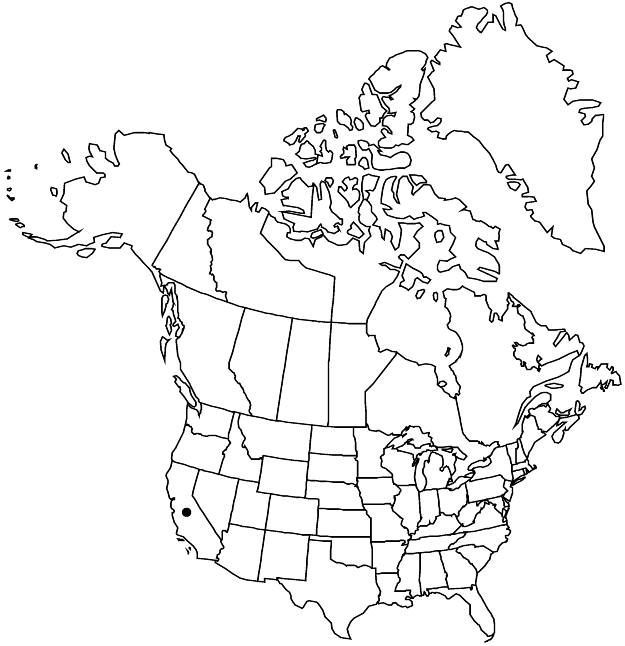Difference between revisions of "Eriogonum umbellatum var. chlorothamnus"
in P. A. Munz, Suppl. Calif. Fl., 44. 1968.
FNA>Volume Importer |
imported>Volume Importer |
||
| (5 intermediate revisions by one other user not shown) | |||
| Line 1: | Line 1: | ||
{{Treatment/ID | {{Treatment/ID | ||
|accepted_name=Eriogonum umbellatum var. chlorothamnus | |accepted_name=Eriogonum umbellatum var. chlorothamnus | ||
| − | |accepted_authority=Reveal | + | |accepted_authority=Reveal |
|publications={{Treatment/Publication | |publications={{Treatment/Publication | ||
|title=in P. A. Munz, Suppl. Calif. Fl., | |title=in P. A. Munz, Suppl. Calif. Fl., | ||
| Line 8: | Line 8: | ||
}} | }} | ||
|common_names=Sherwin Grade sulphur flower | |common_names=Sherwin Grade sulphur flower | ||
| + | |special_status={{Treatment/ID/Special_status | ||
| + | |code=E | ||
| + | |label=Endemic | ||
| + | }} | ||
|basionyms= | |basionyms= | ||
|synonyms= | |synonyms= | ||
| Line 24: | Line 28: | ||
|elevation=1600-2600(-2900) m | |elevation=1600-2600(-2900) m | ||
|distribution=Calif. | |distribution=Calif. | ||
| − | |discussion=<p>Variety chlorothamnus is closely related to var. subaridum and is known only from scattered populations on the eastern slope of the Sierra Nevada in Inyo, southern Mono, and northeastern Tulare counties. Frequently it grows with var. nevadense, and mixed collections may be encountered in herbaria. The plants do well in cultivation and certainly are worthy of a place in the garden.</p> | + | |discussion=<p>Variety chlorothamnus is closely related to <i></i>var.<i> subaridum</i> and is known only from scattered populations on the eastern slope of the Sierra <i>Nevada</i> in Inyo, southern Mono, and northeastern Tulare counties. Frequently it grows with <i></i>var.<i> nevadense</i>, and mixed collections may be encountered in herbaria. The plants do well in cultivation and certainly are worthy of a place in the garden.</p> |
|tables= | |tables= | ||
|references= | |references= | ||
| Line 33: | Line 37: | ||
-->{{#Taxon: | -->{{#Taxon: | ||
name=Eriogonum umbellatum var. chlorothamnus | name=Eriogonum umbellatum var. chlorothamnus | ||
| − | + | |authority=Reveal | |
| − | |authority=Reveal | ||
|rank=variety | |rank=variety | ||
|parent rank=species | |parent rank=species | ||
| Line 47: | Line 50: | ||
|publication title=in P. A. Munz, Suppl. Calif. Fl., | |publication title=in P. A. Munz, Suppl. Calif. Fl., | ||
|publication year=1968 | |publication year=1968 | ||
| − | |special status= | + | |special status=Endemic |
| − | |source xml=https:// | + | |source xml=https://bitbucket.org/aafc-mbb/fna-data-curation/src/2e0870ddd59836b60bcf96646a41e87ea5a5943a/coarse_grained_fna_xml/V5/V5_704.xml |
|subfamily=Polygonaceae subfam. Eriogonoideae | |subfamily=Polygonaceae subfam. Eriogonoideae | ||
|genus=Eriogonum | |genus=Eriogonum | ||
Latest revision as of 23:13, 5 November 2020
Subshrubs or shrubs, erect to rounded, (4–)5–10(–12) × 5–12 dm. Aerial flowering stems erect, 1–2.5 dm, glabrous, without one or more leaflike bracts ca. midlength. Leaves in rather loose rosettes; blade oblanceolate to narrowly elliptic, 0.5–2 × 0.3–1 cm, glabrous on both surfaces, margins plane. Inflorescences compound-umbellate, branched 2–5 times; branches glabrous, without a whorl of bracts ca. midlength; involucral tubes 2–2.5 mm, lobes 1–1.5 mm. Flowers 3–6 mm; perianth bright yellow.
Phenology: Flowering Jul–Sep.
Habitat: Sandy granitic flats and slopes, sagebrush communities, conifer woodlands
Elevation: 1600-2600(-2900) m
Discussion
Variety chlorothamnus is closely related to var. subaridum and is known only from scattered populations on the eastern slope of the Sierra Nevada in Inyo, southern Mono, and northeastern Tulare counties. Frequently it grows with var. nevadense, and mixed collections may be encountered in herbaria. The plants do well in cultivation and certainly are worthy of a place in the garden.
Selected References
None.
